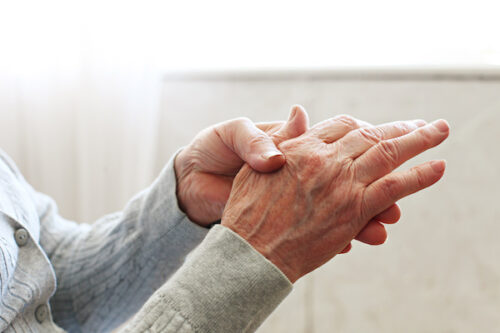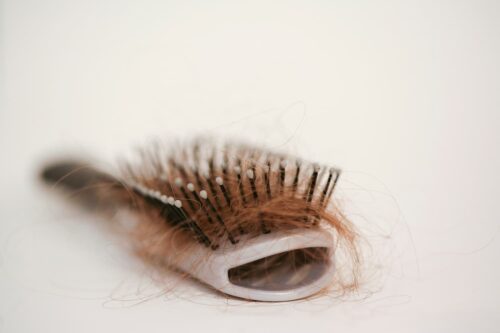Common Health Problems: Gallbladder Disease
Understanding the cause of gallbladder disease will help you with preventing or treating it. More than 90% of gallstones found in people living in affluent nations are composed primarily of cholesterol. When the bile fluids in the gallbladder become over-saturated with cholesterol, precipitation of the cholesterol into solid crystals begins, and then gradually accumulate to form stones of variable sizes. A diet high in cholesterol-containing foods–red meats, poultry, fish, and dairy products–is the primary culprit for the development of the super saturated levels of cholesterol in the bile. Polyunsaturated oils (vegetable oils), too, will cause the liver to excrete larger quantities of cholesterol that pass into the fluids in the gallbladder, and thereby favor stone formation.
Avoid surgery whenever possible. Several recent studies have addressed the issue of whether or not asymptomatic gallstones should be removed. The findings consistently show that your risk of dying and/or developing complications is much greater if you choose to have surgery than if you decide to leave the stones alone.
People suffering pain from gallbladder disease are most likely to visit hospital operating suites. If, however, they are not too ill, they still have a very good chance of avoiding the surgeon’s knife by making the sensible decision to stop eating the high-fat, high-cholesterol foods that provoke the formation of gallstones. A low-fat diet is the time-honored approach for relieving gallbladder pain and preventing further attacks. However, changing the diet does not guarantee that the gallstones will dissolve; and the disappearance of stones should not be your goal.
Well-meaning doctors will sometimes frighten patients into accepting surgery by emphasizing the possibility of developing cancer of the gallbladder from the constant irritation produced by the gallstones. Actually the risk of cancer from this cause is insignificant. Don’t be fooled into submitting to the surgeon’s knife for the removal of Asymptomatic gallstones because of a doctor-induced cancer phobia.
The idea that gallstones will slip into the duct and get caught there is another excuse given to patients to justify the need to operate on their “silent” Asymptomatic gallstones. Actually, very rarely do small stones, even those that are being dissolved away through the use of drugs, become trapped in the duct to block it.
If you have gallstones, then alter your diet today. If this approach for one reason or another is not successful (after you’ve given it a trial for a reasonable time), you will have no trouble in finding an experienced surgeon to take out your gallbladder. Each year an estimated 515,000 patients in the United States have this operation, at an average cost of $10,000 per operation.
Recommendations
+-A no-cholesterol, low-fat diet (including all vegetable fats too), for preventing gallbladder disease and gallstones. If you develop pain see your doctor. If the attack subsides and your situation is not a surgical emergency, then eat a very low-fat diet to avoid further attacks. Do not allow an operation to remove gallstones that do not cause symptoms.
References
+-Finlayson, N. Cholecystectomy for gallstones. A good thing if they cause symptoms. Br Med J 298:133, 1989
Bateson, M. Gallstone disease–present and future. Lancet 2:1265, 1986
Editorial–Cholecystectomy: the dissatisfied customer. Lancet 1:339, 1988
Bilhartz, L. Cholesterol gallstone disease: the current status of nonsurgical therapy. Am J Med Sci 296:45, 1988
Thistle, J. The natural history of cholelithiasis: The National Cooperative Gallstone Study. Ann Intern Med 101:171, 1984
Pixley, F. Dietary factors in the aetiology of gall stones: a case control study. Gut 29:1511, 1988
Pixley, F. Effect of vegetarianism on development of gall stones in women. Br Med J 291:11, 1985
Wechsler, J. Influence of increased fibre intake on biliary lipids. Scand J Gastroenterol-Suppl 129:185, 1987
DenBesten, L. The effect of dietary cholesterol on the composition of human bile. Surgery 73:266, 1973
Hepner, G. Altered bile acid metabolism in vegetarians. Dig Dis 20:935, 1975
Friedman, L. Management of asymptomatic gallstones in the diabetic patient. A decision analysis. Ann Intern Med 109:913, 1988
Ransohoff, D. Prophylactic cholecystectomy or expectant management for silent gallstones. A decision analysis to assess survival. Ann Intern Med 99:199, 1983
Maringhini, A. Gallstones, gallbladder cancer, and other gastrointestinal malignancies. Ann Intern Med 107:30, 1987
Linos, D. Cholecystectomy and carcinoma of the colon. Lancet 2:379, 1981
Recommended Articles

Diet: Only Hope for Arthritis

18 Ways to Prevent and Reverse Heart Disease






Join the Conversation!
Have a question, a helpful tip, or a story from your journey? Add it below - your voice matters.